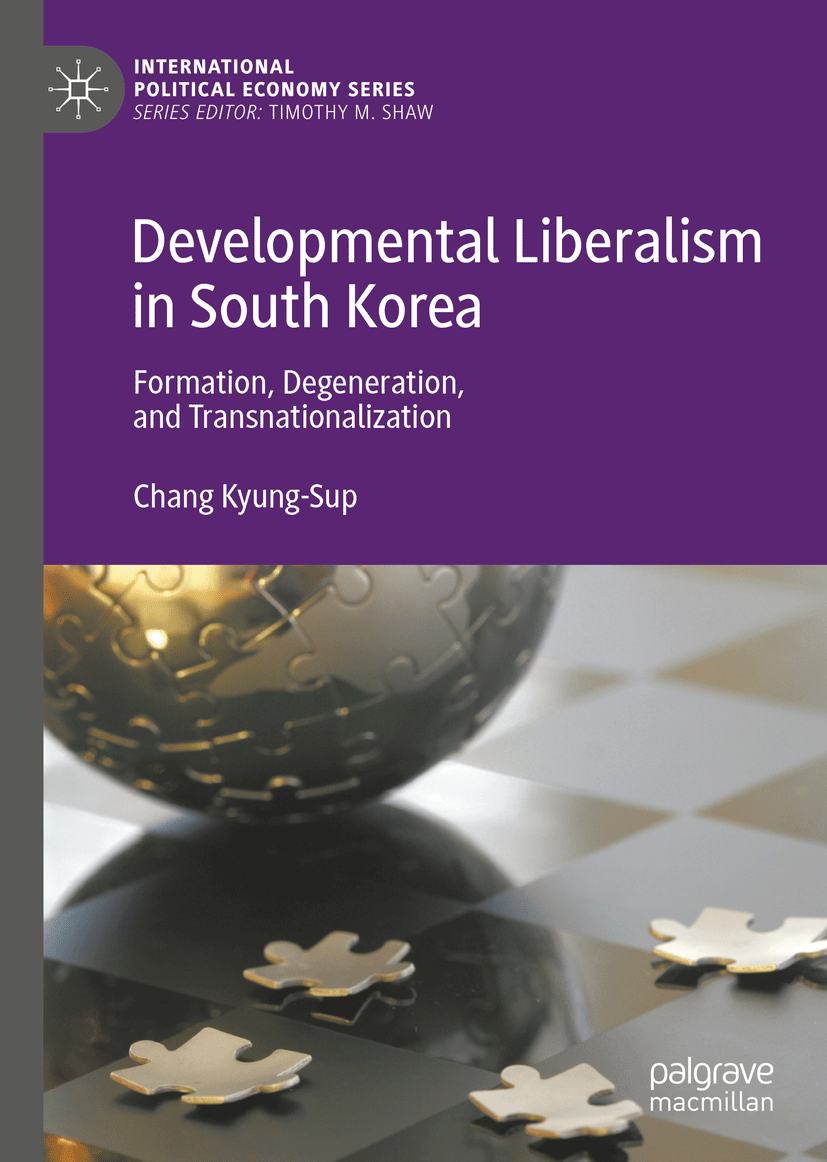
Developmental Liberalism in South Korea Formation, Degeneration, and Transnationalization

- Author: Chang Kyung-Sup
- Publication Date: May / 2019
- Publisher: Palgrave Macmillan
This study defines the basic nature of Korean social policy as “developmental liberalism” in the relation with developmental political economy, and attempts an analysis of its historical context and social/economic/political contents. Developmental liberalism is a concept and theory to systematically explain the complex correlation between developmentalism and liberalism that developmental states such as Korea revealed in their social policy in state-led capitalist industrialization and economic growth. It consists of the following: (1) Depoliticization of social policy, technical bureaucratization, developmental entangling, (2) developmental subsumption of subjects targeted by social policy, (3) the enterpreneurial association of state-capital and the government’s direct intervention in labor-capital relationship, (4) a familist reconfiguration of social rights (or social civil rights), (5) welfare pluralism and negation of citizenship. Developmental liberalism illuminates that the simple zero-sum perspective between the developmental goals and welfare goals of the state has been disposed of, and that liberalism itself in social policy has been systematically constructed and operated in an interlock with the state strategy of developmental liberalism and thus civilian subjects such as corporates, laborers and citizens have adjusted their own interests. This reveals that Korea, under the rule as a developmental state, was not simply an underdeveloped welfare nation or a welfare laggard, but has gone through economic/social changes based on its unique system of social change. Furthermore, this study examines the radical reorganization of economic structure and social destabilization after the so-called “IMF crisis” at the end of the last century in the context of developmental liberalism, thus explaining the concluding process of wide destabilization and social conflict in civil life despite rapid economic recovery centering around some industries. This study also shows that as the aggressive expansion of Korean industrial capital into all Asian regions becomes interlinked with influences from Japan and China, the entire Asia is being structured in one system of industrial capitalism, and in that process, developmental liberalism (though dramatically degenerated in Korea) is transnationally defining the nature of society (and policy) in Asia. Along with the author’s study on “familial liberalism”, this study is part of the author’s endeavor to illuminate how liberalism, as Korea’s basic systematic order, manifested as a practice-based construct of specific historical practice and experience of major agents.
